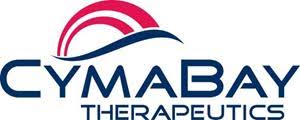Engine Capital filed a 13D on Cymabay (CBAY) two weeks after the development stage biotech company halted a trial of its leading drug candidate causing it’s shares to fall as much as 75%.
In a 13D filing Thursday evening, New York-based Engine Capital, L.P. disclosed a 7.3% stake in CBAY. The hedge fund reported buying 4.98 million shares at an average cost of $1.52 between Nov. 26 and Dec. 12.
Arnaud Ajdler founded Engine Capital in 2013, and serves as the fund’s managing partner. He was previously a partner at Crescendo Partners, a value-oriented activist investment firm, from 2005–2013. Ajdler is also an adjunct professor of Value Investing at the Columbia Business School.
From Engine Capital’s ADV part 2:
A. METHODS OF ANALYSIS,INVESTMENT STRATEGIES AND RISK OF LOSS
Engine primarily seeks to achieve capital appreciation for Clients by investing the
Funds’ assets both actively and passively in companies whose securities Engine
considers undervalued and that are going through (or are expected to go through)
changes that are likely to unlock shareholder value. These changes can be operational
(management change, margin improvements, sales growth acceleration), strategic
(spinoff of assets with different financial characteristics, sale of the entire company,
changes in industry competitive dynamics), capital allocation related (return of cash to
shareholders (buyback, dividend), acquisitions, use of capex towards highest risk adjusted returns), capital structure related (optimizing the balance sheet, refinancing)
or governance related (board improvement, separating the roles of CEO and Chairman,
executive compensation). In certain situations, Engine will push for changes by
undertaking an activist approach and will try to influence the company either through
board representation, proxy fights or public filings.
CymaBay currently has net cash of about $3 per share and trades just above $2.
Engine Capital filed a 13D on CymaBay because Arnaud Ajdler no doubt sees value in the shares. As of Q3, the company had $228 million in current assets and $19.2 million in total liabilities. With 68.7 million shares outstanding, CBAY at $2 trades at about 2/3 of its net cash value. Of course, the company is in the drug development business and will likely spend lots of cash going forward.
CBAY found liver damage in some patients receiving its liver disease drug in a mid-stage trial
On Nov. 22, CBAY announced that after biopsies liver damage in some patients, it was discontinuing two mid-stage trials of its liver disease drug. The compay said it had observed “atypical” findings from the first set of liver biopsies, including autoimmune hepatitis, in one mid-stage trial. The company was testing the drug in patients with a fatty liver disease known as non-alcoholic steatohepatitis (NASH). The findings were observed in patients who had shown an improvement in their condition during the trial, or had shown signs of disease stabilization.
The drug developer said it will terminate the NASH study as well as another mid-stage study testing the drug in patients with primary sclerosing cholangitis. It will also halt a late-stage study of the drug in primary biliary cholangitis (PBC), an autoimmune liver disorder.
Reuters quoted Ed Arce, an analyst with HC Wainwright, as saying, “Given the seriousness of what they’ve found, I believe it is now an open question whether the company can recover from this.”
Given that Engine Capital filed a 13D on CymaBay, we will infer that Arnaud Ajdler does not agree with the analyst’s opinion.
Newtyn Management, LLC also sees value in CymaBay stock after is big haircut. Mid-day on Friday, that advisor filed a 13G, disclosing a passive 5.4% stake in CymaBay.
Baker Bros Advisors is CymaBay Therapeutics largest shareholder.
Indeed, in Friday trading after the filing, CBAY closed up 21% to $2.08 on heavy volume, including a 900K share block that traded at $1.84 earlier in the session.

It should be noted that CBAY’s largest shareholder is Baker Bros Advisors with an 8.3% stake. One wonders if that fund might be averaging down after the bad news.
Contact Mark about investing based on SEC filings and smart money disclosures.
Disclaimer:
This investment blog (the “Blog”) is created and authored by Mark W. Gaffney (the “Content Creator”) and is published and provided for informational and entertainment purposes only (collectively, the “Blog Service”). The information in the Blog constitutes the Content Creator’s own opinions. None of the information contained in the Blog constitutes a recommendation that any particular security, portfolio of securities, transaction, or investment strategy is suitable for any specific person. You understand that the Content Creator is not advising, and will not advise you personally concerning the nature, potential, value or suitability of any particular security, portfolio of securities, transaction, investment strategy or other matter. To the extent any of the information contained in the Blog may be deemed to be investment advice, such information is impersonal and not tailored to the investment needs of any specific person.
From time to time, the Content Creator or its affiliates may hold positions or other interests in securities mentioned in the Blog and may trade for their own account(s) based on the information presented. The Content Creator may also take positions inconsistent with the views expressed in its messages on the Blog.
The Content Creator may hold licenses with FINRA, the SEC or states securities authorities and these licenses may or may not be disclosed by the Content Creator in the Blog.
Investing in the investments discussed in the Blog may be risky and speculative. The companies may have limited operating histories, little available public information, and the stocks they issue may be volatile and illiquid. Trading in such securities can result in immediate and substantial losses of the capital invested. You should use invest risk capital, and not capital required for other purposes, such as retirement savings, student loans, mortgages or education.




